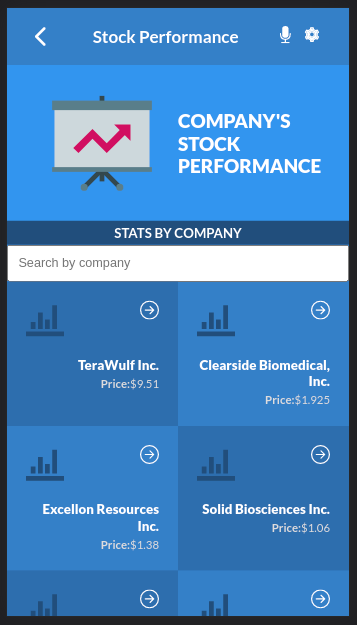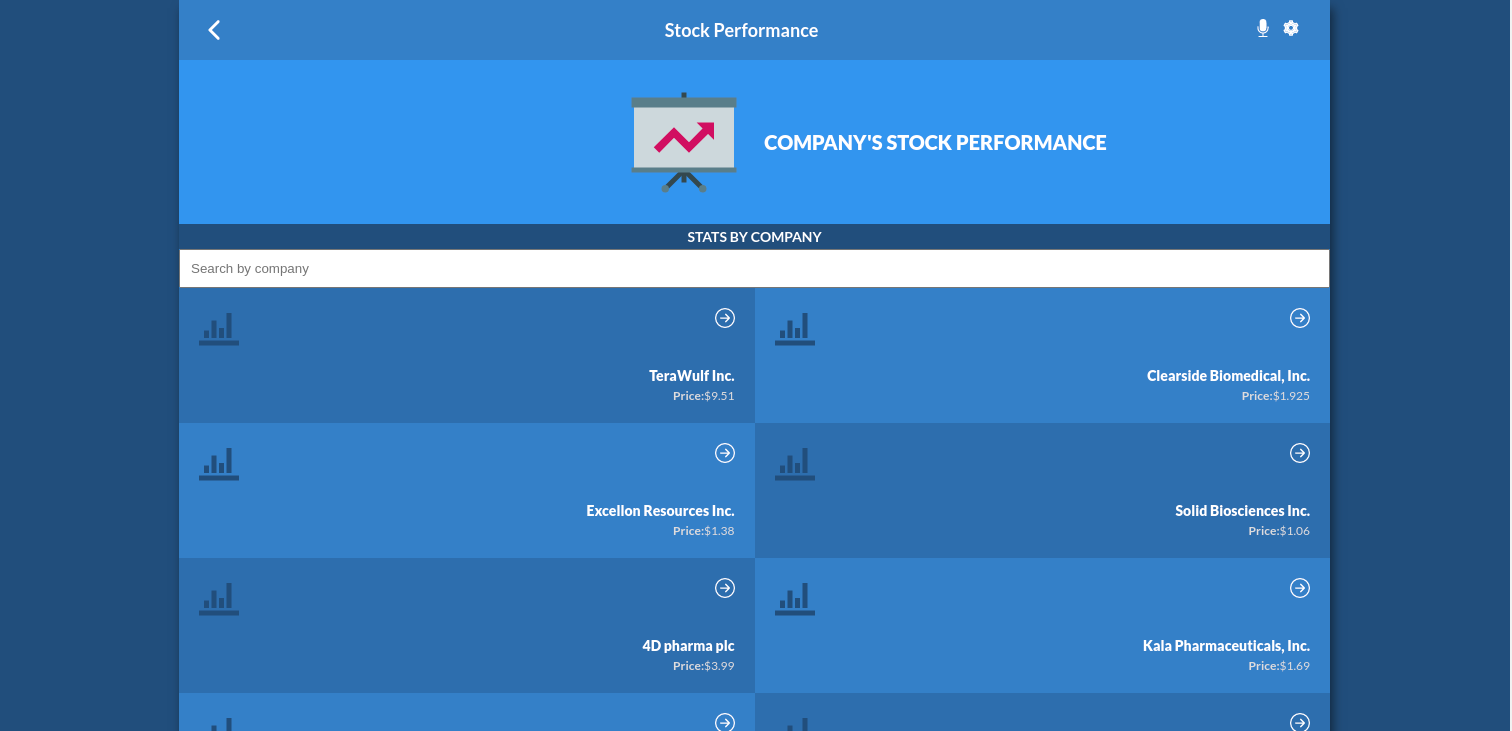Stock performance is a web application to check out performance by company to see which one performs the best, based on an external API provided by Financial Modeling Prep. Built with React, Redux, and SCSS.
- JavaScript
- HTML
- CSS
- React
- npm
- Webpack
- Redux
- Use React documentation.
- Use React components.
- Use React props.
- Use React Router.
- Connect React and Redux.
- Handle events in a React app.
- Write integration tests with a React testing library.
- Use styles in a React app.
- Use React life cycle methods.
- Apply React best practices and language style guides in code.
- Use store, actions and reducers in React.
Stock Performace App Live Demo Link
-
In order to see the app in your browser you must click on the link "Live Demo"
-
To get a local copy up and running follow these simple example steps:
- Node
- npm
- Clone the repository and install the dependencies:
$ git clone https://github.com/andres-condezo/stock-performance.git
$ cd stock-performance
$ npm Install
In the project directory, you can run:
$ npm start
Runs the app in the development mode.
Open http://localhost:3000 to view it in your browser.
The page will reload when you make changes.
You may also see any lint errors in the console.
$ npm test
Launches the test runner in the interactive watch mode.\
$ npm run build
Builds the app for production to the build folder.
It correctly bundles React in production mode and optimizes the build for the best performance.
The build is minified and the filenames include the hashes.
Your app is ready to be deployed!
$ npm run eject
Note: this is a one-way operation. Once you eject, you can't go back!
If you aren't satisfied with the build tool and configuration choices, you can eject at any time. This command will remove the single build dependency from your project.
Instead, it will copy all the configuration files and the transitive dependencies (webpack, Babel, ESLint, etc) right into your project so you have full control over them. All of the commands except eject will still work, but they will point to the copied scripts so you can tweak them. At this point you're on your own.
👤 Andrés Condezo Monge
- GitHub: @andres-condezo
- Twitter: @andres_condezo
- LinkedIn: andres-condezo
Contributions, issues, and feature requests are welcome!
Feel free to check the issues page.
Give a ⭐️ if you like this project!
- This project was bootstrapped with Create React App.
- Data provided by Financial Modeling Prep API.
- Original design idea by Nelson Sakwa on Behance.
- Icons from https://react-icons.github.io/react-icons/.
- Fonts from https://fonts.google.com/.
This project is MIT licensed.


